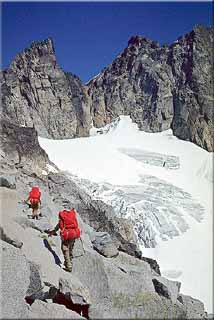Click on image for full size
Image Courtesy of Marc Mayes
East Africa's Lake Tanganyika is Warming More Than Ever Before
Geologists think that the waters of Lake Tanganyika, a long lake located in East Africa, has experienced a huge amount of warming in the last 100 years. Currently, the surface water of this lake is the warmest scientists have ever recorded.
This new information is important because the warm surface waters will probably affect the fish in the lake, and millions of people in that region depend on these fish to live. Lake Tanganyika is surrounded by Burundi, the Democratic Republic of Congo, Tanzania, and Zambia. These four countries are some of the poorest countries in the world. About 10 million people live near the lake and depend on it for drinking water and food.
As the climate warms, the surface of the lake gets warmer and winds on the surface aren't as strong. Winds cause water in the deep part of the lake to mix with water at the surface, bringing nutrients for fish up to the surface. When the winds aren't as strong, there isn't as much food in the durface waters for the fish population. This means the people who live near the lake may not have as much fish as they need.
Scientists are studying places like Lake Tanganyika so they can learn more about what might happen as climate warms. This information can help people make decisions about how they live in their regions.









